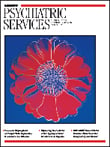The Torture Debate in America
This volume presents the policy debate over torture that has taken place since the revelation of American mistreatment of prisoners in Iraq, Afghanistan, and elsewhere. Twenty essays, written primarily by attorneys and legal scholars, discuss from a variety of perspectives the legal arguments and the practical implications of our current Administration's policy on torture and coercive interrogation methods. Relevant government documents, including the now infamous Bybee-Gonzales "Torture Memo," are reproduced.
Apart from our general interest as citizens, why should psychiatrists read this book? After all both the American Medical Association and the American Psychiatric Association ethics guidelines prohibit physicians' participation in torture ( 1 , 2 ). Bybee, in the Torture Memo, argued that for purely mental pain or suffering to amount to torture it "must result in significant psychological harm of significant duration, such as lasting for months or even years." Bybee further argued that to constitute torture, mental pain or suffering must either be from threats of imminent death, threats of the infliction of the kind of pain that would amount to physical torture, or the use of drugs or other procedures "designed to deeply disrupt the senses or fundamentally alter a subject's personality." Whether one agrees with Bybee's limited definition of mental torture, and I do not, the question for us as mental health care providers is what our ethical limitations are when dealing with coercion or physical and psychologically harmful interrogation practices that do not meet criteria for torture.
Although this book does not directly address the issue, others have reported that physicians and psychologists have advised military personnel on coercive interrogation tactics ( 3 , 4 ). The data and opinions provided by this book's authors will help inform the debate now going on in our professions over mental health practitioners' participation in intelligence interrogations ( 5 , 6 , 7 ).
1. American Medical Association Code of Ethics, E2067 Torture, issued December 1997. Available at www.ama-assn.org/ama/pub/category/8421.htmlGoogle Scholar
2. Joint Resolution of the American Psychiatric Association and the American Psychological Association Against Torture, 1985. Available at: www.psych.org/edu/other_res/lib_archives/archives/198506.pdfGoogle Scholar
3. Bloche MG, Marks JH: Doctors and Interrogators at Guantanamo Bay. New England Journal of Medicine 353:6-8, 2005Google Scholar
4. Miles SH: Abu Ghraib: its legacy for military medicine. Lancet 364:725-729, 2004Google Scholar
5. Janofsky JS: Lies and Coercion: Why psychiatrists should not participate in police and intelligence interrogations. Journal of American Academy of Psychiatry and the Law, in pressGoogle Scholar
6. American Psychiatric Association: Position Statement on Psychiatric Participation in Interrogation of Detainees, 2006. Available at http://www.psych.org/edu/other_res/lib_archives/archives/200601.pdfGoogle Scholar
7. Report of the American Psychological Association Presidential Task Force on Psychological Ethics and National Security, 2005. Available at www.apa.org/releases/penstaskforcereportfinal.pdfGoogle Scholar



